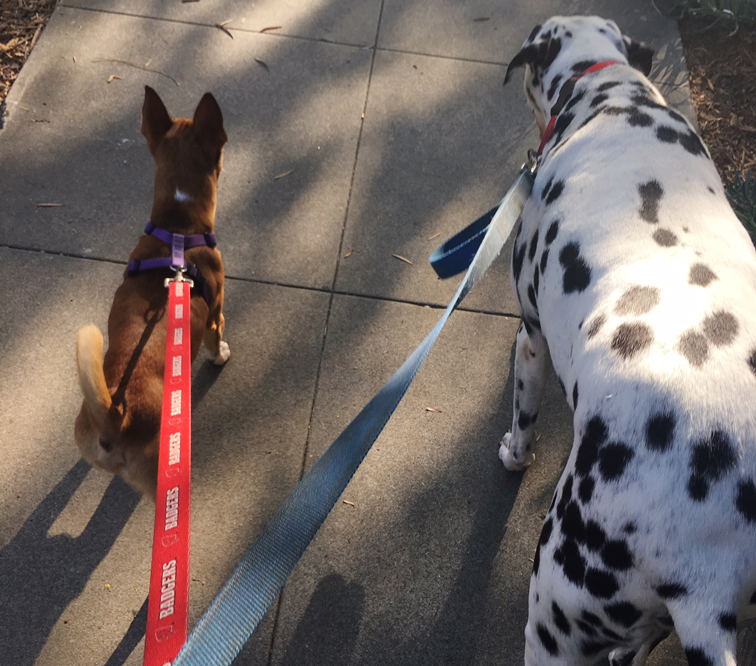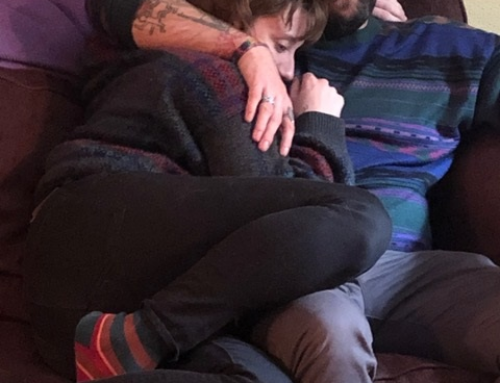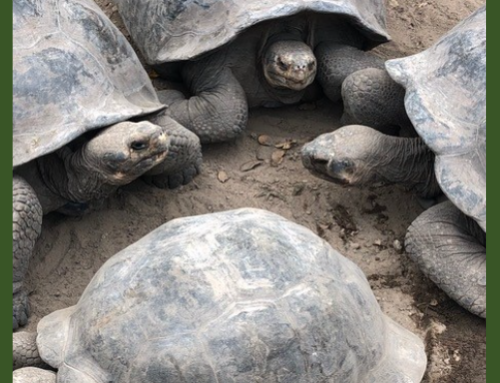When we are Wildly Welcoming, we often find support and connection in the most unlikely of places.
Team Wild member Ashley recently found this little stray dog, Charlie, in her yard and he quickly has become buddies with her Dalmatian, Sebastian.
On Being Wildly Welcoming in the Workplace
Sometimes when I’m speaking at a conference, I’ll ask the audience how many of them, on greeting someone at the event, responded to the query “how are you” with the word “busy?” It’s astonishing how many hands go up.
If I then ask how many responded by reciting a list of everything they have to do, many more hands go up. Indeed, these are such common responses, they nearly rival the automatic reply of “fine, how are you?” At least in the Midwest.
Whether we intend it or not, “busy” is about as off-putting a response to that question as is possible. And we all do it. A lot. Especially in the context of work. It suggests that we do not have time even to say hello. Looking a little deeper, it also can carry hints of esteem, like, we are so busy, we must be pretty important. It can mean overwhelmed or excited or energized about what we are working on at that time. But no matter the reason, saying you are busy shuts down conversation. Even if we are curious about what is making you so busy, your response suggests that you don’t have time to talk. And maybe you don’t.
As an alternative, here’s a different tack, when asked ‘how are you’:
“I almost said ‘busy,’ but that’s kind of a given. There’s just always more to get done. In the midst of that busyness, I’m super excited about __________, hoping it will really have an impact on ___________. So above and beyond ‘busy,’ tell me, really, how are you?”
Or, if someone responds to you with ‘busy,’ you might try:
“Oh boy, that can mean a lot of things. How are you doing in the midst of the busyness?”
Informal communication in the workplace is really confusing. And each work culture has its own style in terms of how much time is acceptable when talking about things outside of work. You won’t find it in any onboarding manual, but I guarantee everybody knows where that line is and learns how to navigate it.
Maybe you’ve decided as a leader or team member that the safest bet is just to keep your work life and personal life totally separate. The trouble with that strategy is two-fold. First, you spend a heck of a lot of time at work, on average roughly 1790 hours a year! That’s a whole lot of time NOT being wholly yourself, NOT being Wild (having the courage to bring the gift of all of who you are to all of what you do). I believe that does damage, not just to your level of enjoyment at work and your productivity, but also to your soul.
Second, it’s been proven time and again that the most productive successful teams are engaged with one another. They have created an environment where people feel seen, known, and safe in terms of offering ideas or sharing something that’s going on in their lives.
If we are to create or be part of this kind of dynamic team or organization, it calls us to move beyond being welcoming with one another, to being Wildly welcoming—embracing another’s Wildness. This means looking beyond our own lens and envisioning what your workplace feels like from another’s perspective.
Recognizing, for example, that a regular work day for a majority of employees can be a holy day for people of different faiths, requiring them to take time off individually, rather than it being a holiday for the whole company. It means maybe they’ll miss an important meeting, or feel they have to compromise something that is deeply meaningful to them.
Or for same sex couples, as teams share about their personal lives, they have to choose between staying silent, doctoring pronouns, or coming out and risking discrimination.
These are just two examples of the myriad ways we show up…and don’t show up… at work, for all kinds of reasons.
Regardless of circumstance, we know it feels better to be connected, to feel a part of something, to work together toward a common goal or mission. This means hazarding yourself, engaging with one another, and seeing beyond your own world view–with curiosity and humility–in order to Wildly welcome each other and enjoy the vast benefits of our differences.










